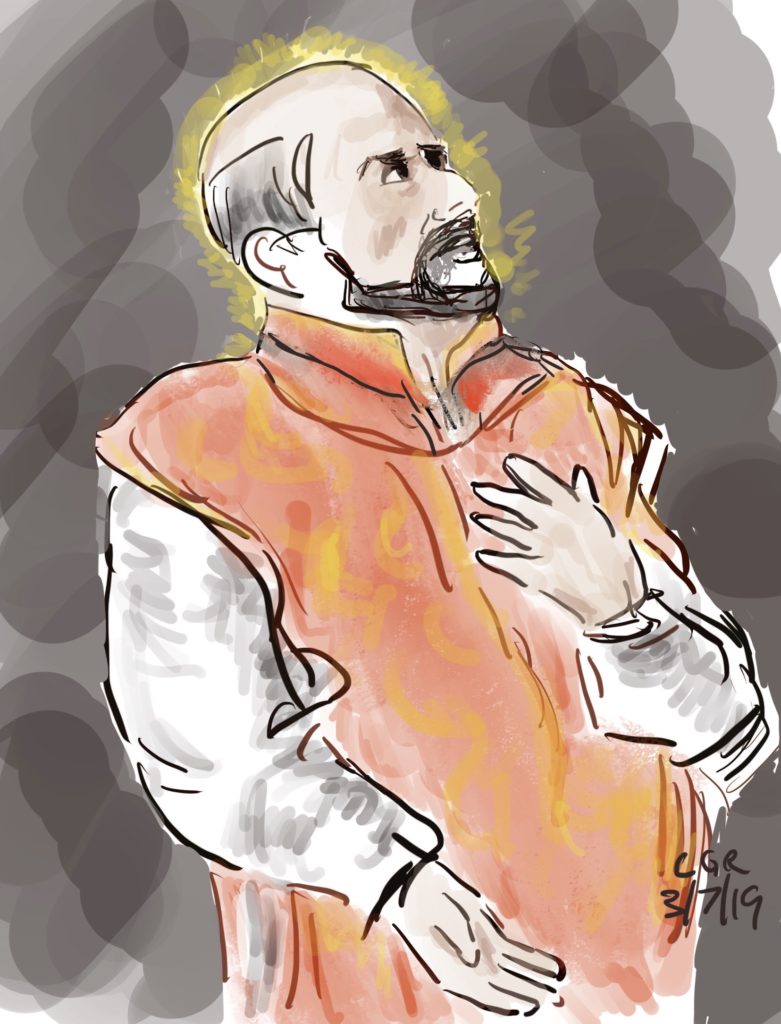
On this first Friday of Lent, when I have to abstain from eating meat–as a billion other Catholics do–not only am I pondering the meaning of this (very) minor sacrifice but also the slightly less minor sacrifice we have to choose for this forty day period.
First of all, I am hungry and I love meat. And now I have to wait at least twelve hours or so before I can take in food products derived from land animals. Second of all, I have chosen two actions for this Lenten period that make me want ponder the point of sacrificing at all.
The first action I’ve chosen for this season is to pray The Examen every night during this season. St. Ignatius, founder of the Jesuit order, created the Examen as a method of reflecting and reviewing the day. Jesuits end their days with this prayer. For you more secular minded folks, think of The Examen as a way of doing a review with your boss, except that your boss just happens to be The Boss of the Entire Universe–and He just happens to be very wise and forgiving.
The second action I’ve chosen is to continue the project I began two years ago for Lent. Back then, I interviewed homeless people in order to understand. Two years later, I have thought about the general principles of problem solving in order to be able to teach my students how to approach an problem. Given the amount of thought I’ve given to problem solving and given the unfinished project from two years ago, my second action for this season is to apply the problem solving rubric I’ve written about for the last two months to a seemingly intractable challenge: the problem of poverty. That’s right, I said that. I want to see how the problem of poverty can be solved.
I know. Good luck with that and so on.
It occurs to me today that the whole point of these minor sacrifices Catholics are enjoined to undertake are really meant to educate us. We are asked to sacrifice for the sake of understanding. And what we ultimately need to understand is why we need to care, what we need to care about and what we need to do about it.
My sacrifices–such as they are–are less than minor. In the end, I’m just sacrificing time. And, frankly, I expect to come away with something greater, so it’s not even going to end up being a sacrifice at all. I expect to understand at the end of 40 days. Certainly not everything, but just a bit more of what I need to do in this life.
So given that I have this primitive problem solving rubric, it’s time for the first step, getting my mind right. Why care about poverty and why solve it? I’ll start there. We can discuss the impossibility of the problem later. First, let’s consider why we even need to care. And–surprise–I am asserting that we do.